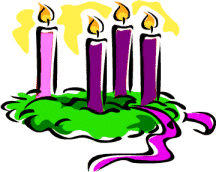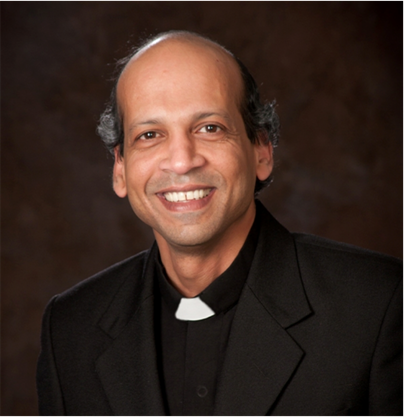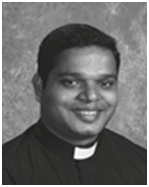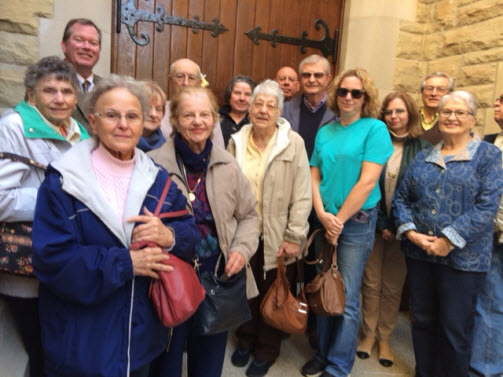When we start a new calendar year, we often use it as a time to take stock and resolve to make changes in our lives. The Church begins a new year today and the readings remind us to be watchful and prepared. Isaiah announced a vision of the New Jerusalem with all nations streaming toward it. Isaiah’s vision reminds us that true peace is found in God alone.
St. Paul instructs us to turn away from works of darkness and seek the light of truth. We can do this when we put on the Lord Jesus and make no provision for the desires of the flesh. This calls us to see ourselves as new creations in Christ; to love Jesus with our whole hearts and make Jesus the center and foundation of our lives.
This comes about by rejecting the ways of sin, by attending Mass at least every Sunday, by being strengthened and nourished by the Sacraments. It also comes about by praying daily and by loving and serving others. Making Jesus the foundation of our lives brings us the gift of true peace and renews our wearied minds and hearts. Then, when our time comes to stand before the Lord, he will find us prepared and ready.
As Advent begins, we would do well to pause for a few moments and reflect. What might be preventing me from making Jesus the center and foundation of my life? What activities preoccupy my time and my thoughts? What bad habits blur my spiritual vision? How could I really listen to the voice of the Lord this Advent season? Saying a special prayer during these four weeks, committing to some spiritual reading, even simply putting an Advent wreath on the table: any of these things can help us focus on Christ as we continue watching and waiting for His coming.
Blessings during this special season.
Fr. Socorro
The Advent Wreath By Father Paul Turner
 An Advent wreath symbolizes our longing for the coming of Christ. The wreath is a circle of evergreen branches into which are set four candles. Traditionally three candles are violet and one is rose, but four violet or four white candles may also be used.
An Advent wreath symbolizes our longing for the coming of Christ. The wreath is a circle of evergreen branches into which are set four candles. Traditionally three candles are violet and one is rose, but four violet or four white candles may also be used.
The wreath symbolizes many things. Evergreens signify God’s enduring promise of redemption, evident like green branches in the midst of snow. The circle signifies our hope for the return of Christ, whose kingdom will have no end. The colors of the candles match the traditional colors of the vesture for the four Sundays of Advent. Violet garments signify our penitent hope for salvation. The rose color, which may be worn on Advent’s Third Sunday, signals that the season is nearly over – joy is at hand!
The wreath’s most luminous symbol is its growing light. One candle is lit on the First Sunday of Advent; two on the Second, three on the Third and all four on the Fourth. In the northern hemisphere, Advent comes at a time when the days decrease to their shortest length. As the hours of darkness increase, we light more candles on the wreath. The wreath, which symbolizes the coming of Christ, grows in intensity as the anniversary of Jesus’ birth draws near.
The Advent wreath may be used at home or at church. It should be blessed on the First Sunday of Advent after the homily at Mass, at evening prayer Saturday night, or during a prayer service including biblical readings and Advent songs. At home, the wreath could be blessed by a family member and lit during the evening meal, to remind everyone of the true meaning of this holy season.

 I hope you see your priest as very human. Quite possibly, even more human than most of us. Why? Because they not
I hope you see your priest as very human. Quite possibly, even more human than most of us. Why? Because they not only have their own struggles being human, but they accompany us in our humanness too.
only have their own struggles being human, but they accompany us in our humanness too. If you missed going to visit the Holy Doors last week with your fellow parishioners there are still a couple dates left:
If you missed going to visit the Holy Doors last week with your fellow parishioners there are still a couple dates left: